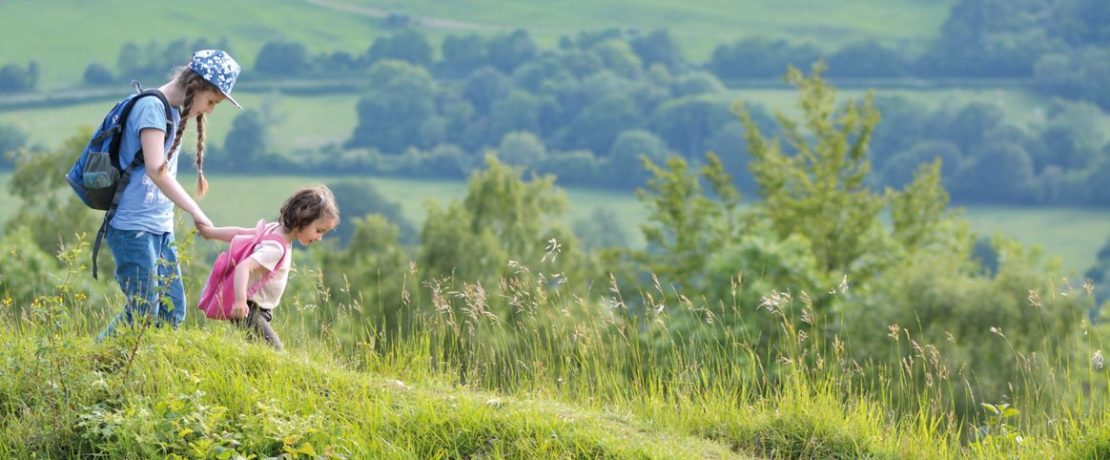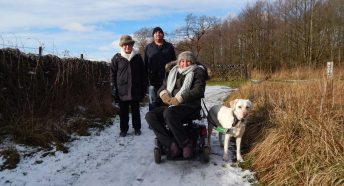The countryside is for everyone: three projects breaking down barriers
As we call for greater opportunities for children from all backgrounds to discover, enjoy and value the great outdoors, Caz Graham reports on three inspirational projects already making this happen.
The vertical limestone cliffs at Malham Cove in the Yorkshire Dales National Park are impressive in anyone’s book; a wide, curving wall of pale grey rock, 80 metres high and 300 wide, straggly trees and bushes dotted sporadically across it, roots clinging tight into the cracks and fissures characteristic of this carboniferous limestone. Swaledale sheep and Belted Galloway cattle that look curiously like humbugs graze the fields beneath and the rough moorland on top.
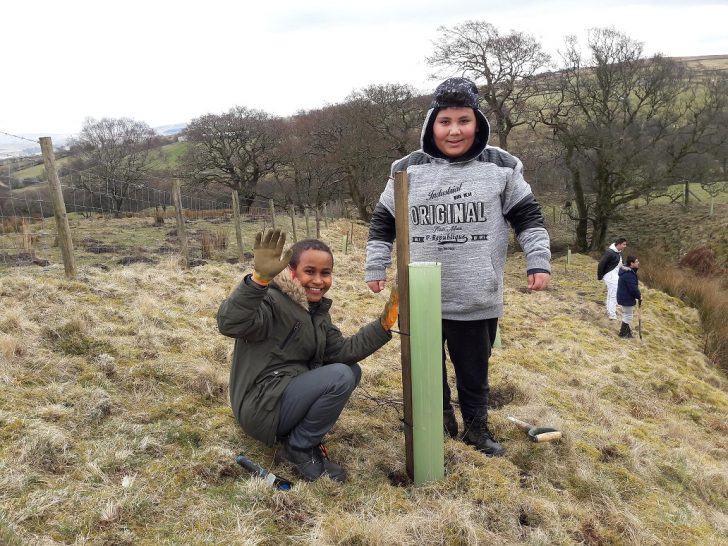
But for some of the young people that Sarah Deane from the Yorkshire Dales Millennium Trust brings here, this place is more than just some spectacular scenery to enjoy on a good day out. It’s simply mind-blowing.
‘They’re overwhelmed by just how different it is in the countryside,’ Sarah says. ‘Some of them don’t know the difference between a sheep and a cow.’
That whole story about kids not knowing what sheep are sounds like a bit of a myth, but Sarah tells me it’s far more common than you’d think. And as the project officer for the Trust’s Green Guardians – part of Our Bright Future, the National Lottery Community Fund programme linking young people and the environment – she’s well placed to know.
The young people Sarah works with aren’t those you see waving banners and quoting Greta Thunberg on youth climate-change marches, or ticking off the National Trust’s 50 Things To Do Before You’re 11. Many have difficult lives, and much more immediate concerns to occupy them. Her project works with 11 to 24-year-old disadvantaged young people, who haven’t had the chance to experience the countryside before.
They come from the urban centres of Leeds and Bradford, or parts of North Lancashire. Some of them are at risk of homelessness; others have challenging behaviour or special educational needs, and some are young carers who have little opportunity to enjoy spending free time in green spaces. With Green Guardians, they might find themselves drystone-walling and restoring wildflower meadows near Malham, or tree-planting and taking part in bushcraft sessions in the Forest of Bowland – anything to get them engaging with the natural world.
So how can that help with long term, complex problems that can’t be resolved easily? Sarah explains what she’s observed over the three-and-a-half years the programme has been running: ‘Just being outside and enjoying themselves is so important. There’s something really regenerative about being outside in nature and just taking it in.
‘That wellbeing aspect of it is one of those things that’s really hard to record, but you can see it in people; in their body language and expressions,’ she continues. ‘We’re not designed to live in concrete boxes in towns.’
Sowing the seed
One 19-year-old who’s been struggling to find somewhere to live describes what getting out of the city has done for him: ‘Normally, I don’t like going out of Blackburn,’ he says. ‘This has done my confidence good; it took a lot for me to come on this trip.’
The beauty of the landscapes that the young people visit – as well as just having the opportunity to take part – has a real impact. ‘They think it’s going to be really boring, but they all say how much they enjoy it,’ Sarah smiles.
The Green Guardians project also welcomes young asylum seekers living in Leeds. Many have travelled unaccompanied across Europe, escaping persecution in Eritrea; they often have farming backgrounds and lived in rural areas before being forced to flee, so getting out of the city and discovering the English countryside is a special experience.
For Sarah these visits aren’t just about quick fixes – that would be unrealistic – but about offering respite, and opening a door to a more permanent relationship with the outdoors and the benefits that brings. It’s also about showing that the countryside is for everyone, and that everyone has permission to visit.
‘I tell people this is a National Park; this is a public footpath, so you’re allowed to walk on it, and you can get the bus here,’ she says. ‘It’s about sowing that seed.’
One of the key recommendations of Julian Glover’s recent review of National Parks and Areas of Outstanding Natural Beauty, commissioned by DEFRA, was that every school pupil should have the chance to spend a night ‘under the stars’ in one of these special landscapes, to help more children to connect with nature. It’s a vision shared by CPRE, which gave evidence to the review, and as chief executive Crispin Truman says: ‘We believe there should be a bold ambition for every child to visit and learn about these places, and for people from all walks of life to have the opportunity to visit and fall in love with National Parks and AONBs.’
Farm life
That idea of staying overnight in the countryside is an important one, and Vanessa Fox sees its impact on a daily basis. She’s the hugely enthusiastic CEO of Farms for City Children. The charity was set up in 1976 by Michael Morpurgo, the writer and former Children’s’ Laureate, and his wife Clare. Over the last 40 years, nearly 100,000 primary school children have spent a week at one of the charity’s three farms: Nethercott House in Devon, Lower Treginnis in Pembrokeshire and Wick Court in Gloucestershire.
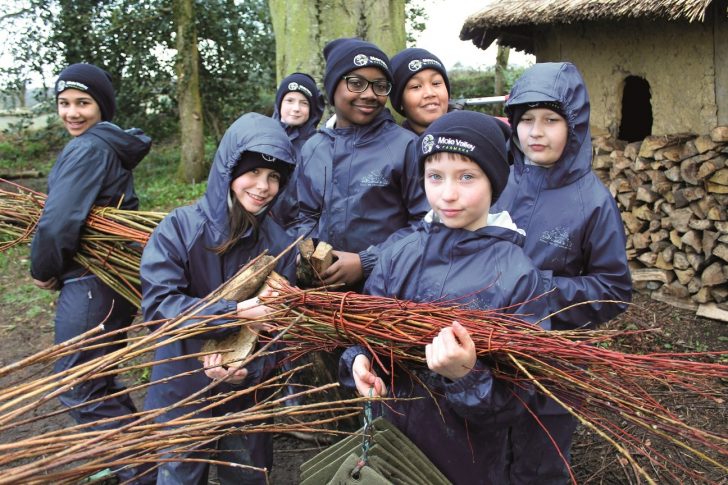
The 8 to 11-year-olds who visit come from schools in disadvantaged urban areas across the country, including Newcastle, Liverpool, Plymouth and London. Eligibility criteria for participating schools are based on local area deprivation and the number of pupils receiving free school meals. Some of the children have difficult and chaotic lives and encounter multiple disadvantages, socioeconomic and otherwise, which can have an impact on their mental health, confidence and behaviour.
They stay on the farms with their classmates and teachers, and work with Farms for City Children staff, mucking out and feeding animals, planting and harvesting vegetables and doing numerous other farm jobs.
‘Quite often, children who struggle in the classroom will absolutely thrive in the farm environment,’ says Vanessa. ‘They get this great experience of succeeding and being acknowledged for the first time, and it changes the way their peer group and teachers relate to them.’
You can understand the impact of this when you hear accounts like this one, from a nine-year-old London schoolgirl: ‘The thing I’m most proud of doing is feeding a lamb that even the farmers couldn’t feed. I got the bottle and he sniffed it for a while, and then finally drank the milk.’
It’s a first experience of the countryside for a lot of the visiting children. Vanessa has met kids from housing estates in Plymouth who’ve never played on a beach, despite living just a few miles from the sea, because children need an adult to take them – and if the adults in the family are on a tight budget, or have no understanding or culture of visiting the countryside, then it’s unlikely to be a priority.
Reaching new audiences
Breaking that generational cycle of disengagement from the countryside and nature is a tough nut to crack, not least for people from some black, Asian and minority ethnic (BAME) communities. Seventeen-year-old Mya-Rose Craig is a young British Bangladeshi birder and environmentalist living near Bristol, who set up an organisation called Black2Nature that aims to improve access to the natural world for visible minority ethnic (VME) people.
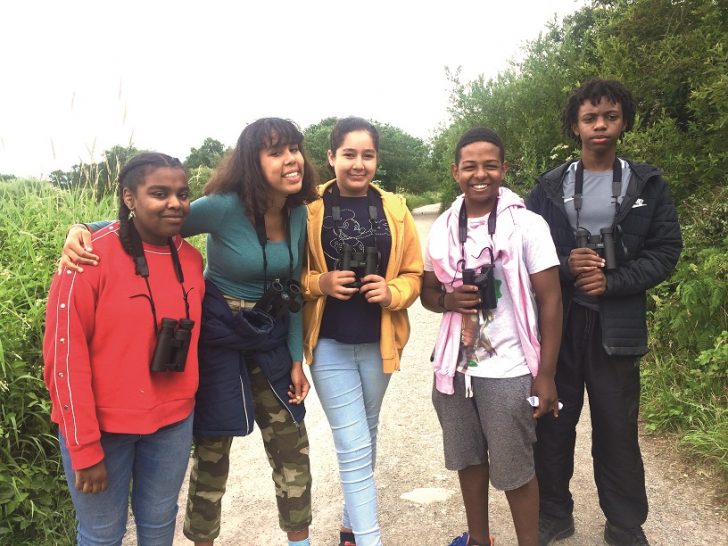
Black2Nature has run eight nature camps for young people from inner-city Bristol over the last five years – but persuading them and their families that getting out of the city is a positive experience sometimes isn’t easy.
‘There’s this cultural disconnect,’ Mya-Rose tells me. ‘It’s a very complex issue; things like people feeling that the countryside is white and elitist and they’re not welcome there – and also much simpler reasons, like there’s quite often a cultural fear of dogs, or things like that.’
The nature camps, which take place on the Somerset Levels, are aimed at children and teenagers who’ve had no experience of nature, and introduce them to birdwatching, camping out and even hands-on conservation activities such as ringing birds.
Some aren’t very open to the experience when they first arrive, but as Mya-Rose explains, it’s all about giving them a frame of reference; a door in. On the very first camp, one of the volunteer helpers was telling some bored boys about how fast peregrine falcons can fly and compared the birds to Formula One cars, with immediate interest.
The catalyst that got Mya-Rose started was an article about the lack of diversity in nature in an American Birding Association title: ‘It was like a light switch going on, because I’d subconsciously been aware of it before, but I’d never really noticed it properly,’ she says. ‘After that I decided I wanted to get some kids more like me – VME – out on camp.’
And that was just the beginning. More than a hundred young people have now enjoyed the camps, which as Mya-Rose puts it, is ‘pretty cool’.
Nabil Khandker, aged 15, was one of them: ‘I loved the camp, especially the bird ringing,’ he says. ‘I was quite scared of holding a bird to start with. Mya-Rose really encouraged me to hold one, and I felt really proud to let it go. I was also given responsibility to light the fire and look after the food, which nobody usually lets me do.’
At the time of the last census, more than 98% of the UK’s Bangladeshi, Pakistani and black African population lived in an urban area. Meanwhile, this autumn’s Glover Review found that more than 99% of National Park board members are white. So it’s perhaps not surprising that there’s work to be done to get more BAME people out into the countryside.
Are things getting better? Are national organisations serious about encouraging more engagement with VME people, I asked Mya-Rose? She’s cautiously optimistic: ‘Really recently – in the last six months or so – I’ve started hearing things I’ve been shouting about for years echoing back at me, which shows things are finally starting to change.’
She thinks it’s critical they do, and that change needs to happen quickly: ‘We have an environmental crisis on our hands at the moment, and we need people to be engaged and to care about the environment in order to want to save it. If they don’t know it, if they’ve never experienced it, then why are they going to care?’
Caz Graham is a reporter and presenter for BBC Radio 4, with an interest in the outdoors, farming and Cumbria.
A version of this article was originally published in CPRE’s award-winning magazine, Countryside Voices. You’ll have Countryside Voices sent to your door three times a year, as well as access to other benefits including discounts on attraction visits and countryside kit from major high street stores when you join as a CPRE member. Join us now.
